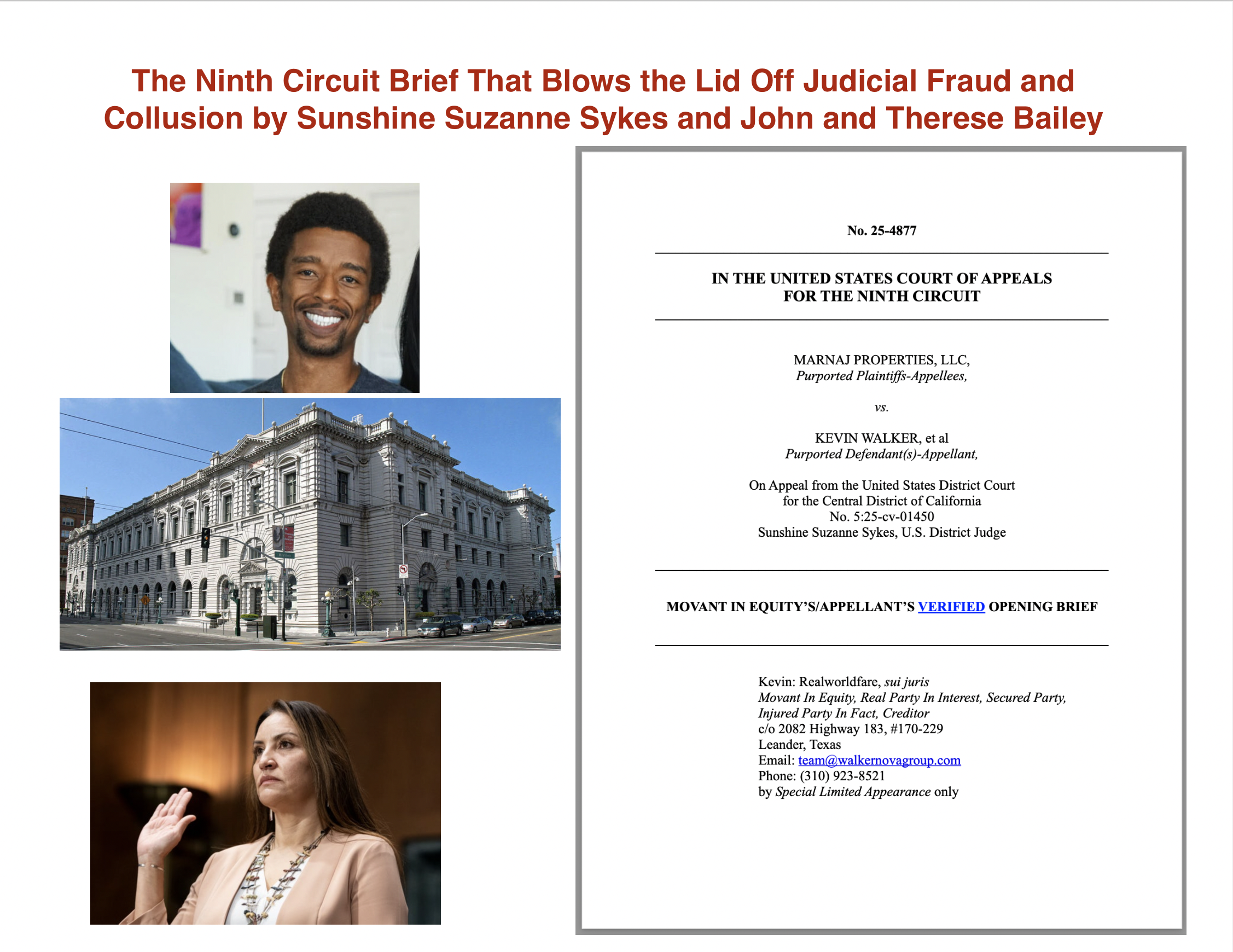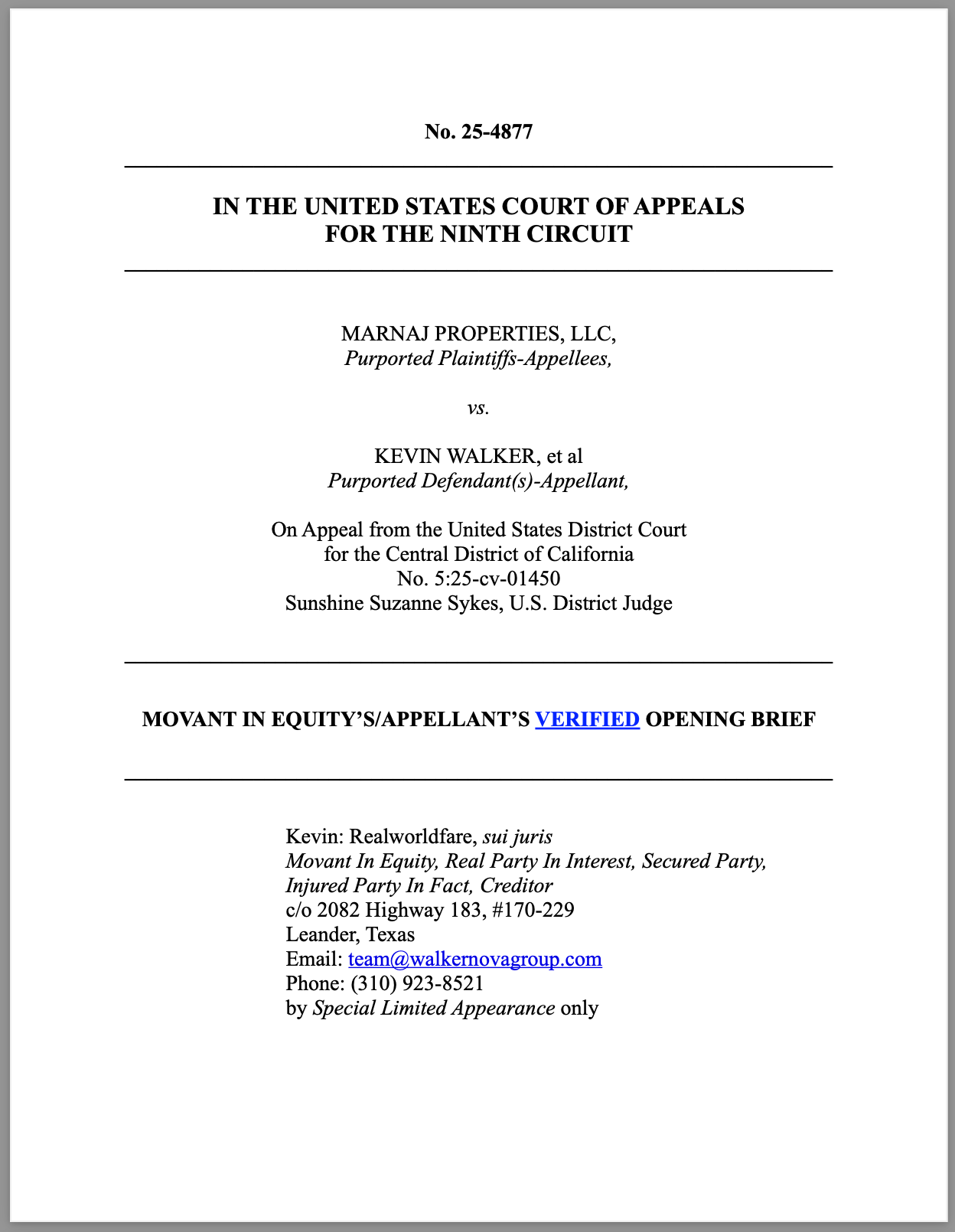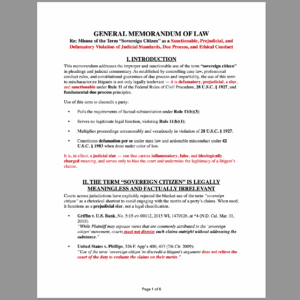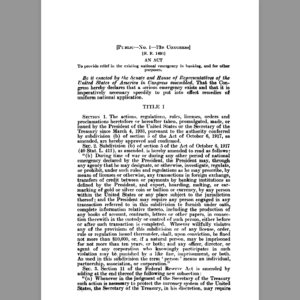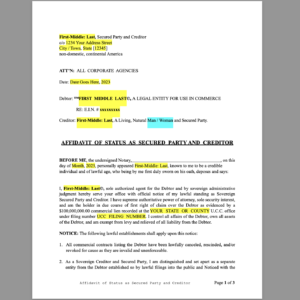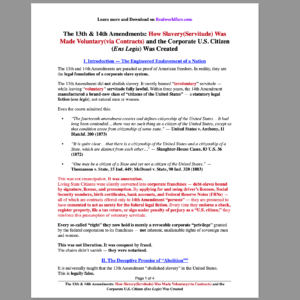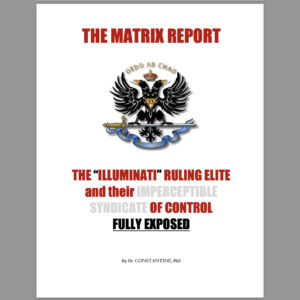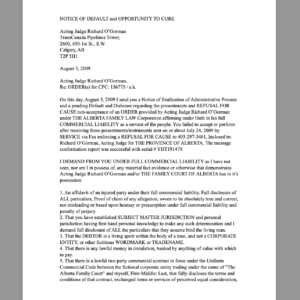Introduction
The September 10, 2025 Opening Brief filed by Kevin: Realworldfare in the Ninth Circuit (Case No. 25-4877) is not just an appeal—it is a criminal indictment masquerading as a legal brief. It lays bare a scheme of fraud, collusion, and outright defiance of the law by Judge Sunshine Suzanne Sykes and counsel for Marinaj Properties LLC, one that shredded due process and left a record soaked in unrebutted verified affidavits.
The facts are uncontested: On July 11, 2025, Realworldfare filed a verified affidavit under 28 U.S.C. § 144 demanding Sykes’ disqualification. At that instant, by operation of law, she was jurisdictionally dead—barred from taking another step in the case under 28 U.S.C. § 455 and Fed. R. Civ. P. 63. Yet she arrogated to herself the unlawful power to rule on her own recusal, denied disqualification, and days later issued a fraudulent remand order. Precedent is explicit: In re Murchison and Caperton v. Massey Coal prohibit a judge from being the judge of her own bias. Every order thereafter is void ab initio, a nullity.
Making matters worse, Appellant’s filings—all verified under 28 U.S.C. § 1746—were met not with evidence, but with nothing but unverified, hearsay attorney arguments from Marinaj’s counsel. By law, unrebutted verified affidavits must stand as truth (United States v. Kis). The record is therefore wholly unrebutted in Realworldfare’s favor. Yet Sykes and opposing counsel colluded to enforce fraudulent, unverified papers while striking verified filings—a brazen violation of due process and the Fifth Amendment.
The unlawful detainer itself was jurisdictionally void from inception. Title disputes strip UD courts of jurisdiction (Cheney v. Trauzettel, Martin-Bragg v. Moore). Three quiet title actions were pending, and indispensable title-holding trusts (WG EXPRESS TRUST and WG PRIVATE IRREVOCABLE TRUST) were never joined. That alone demanded dismissal. Instead, Sykes and counsel steamrolled forward, propping up fraudulent foreclosure documents, omitting necessary parties, and trampling constitutional rights from the First Amendment right to petition to the Fifth Amendment’s Due Process and Takings Clauses.
Fraud vitiates everything. Throckmorton and Hazel-Atlas Glass make clear that a judgment born of fraud is void, not voidable. This case is the epitome of fraud on the court: a disqualified judge colluding with counsel to simulate jurisdiction, suppress evidence, and force an unlawful seizure of private property.
The Opening Brief leaves the Ninth Circuit no wiggle room. Under 28 U.S.C. § 1447(d), review of civil rights removals under § 1443(1) is mandatory, not discretionary. The Court must vacate Judge Sykes’ void orders, sanction the attorneys who enabled this fraud, and restore possession, title, and rights to the Appellant. Anything less would make the Ninth Circuit complicit in the very fraud now before it.
Key Unrebutted Facts:
Ignoring § 1443(1) Civil Rights Removal
Perhaps the most damning aspect of Judge Sykes’ conduct was her willful disregard of 28 U.S.C. § 1443(1). Movant In Equity’s/Appellant’s removal was explicitly predicated on civil rights violations—statutorily protected under § 1443(1). By law, such removals are immune from ordinary remand restrictions and are reviewable on appeal as of right under § 1447(d).
Yet Sykes deliberately omitted any reference to § 1443(1) in her July 24, 2025 remand order, fraudulently treating the case as though it were an ordinary removal. This omission was not oversight—it was a calculated attempt to avoid addressing the civil rights claims and to shield state-court fraud from federal review. In doing so, she manufactured a jurisdictional smokescreen, remanding a case she had no authority to touch after her disqualification, while simultaneously burying the very civil rights violations Congress intended to protect.
Such conduct is not mere error; it is judicial fraud. By ignoring § 1443(1), Sykes deprived Appellant of federally guaranteed remedies, obstructed justice, and violated both due process and equal protection under the Fourteenth Amendment. Her fraudulent remand must be vacated, and the Ninth Circuit is compelled to enforce federal jurisdiction to prevent this blatant suppression of civil rights.
Mandatory Disqualification Ignored
Judge Sunshine Suzanne Sykes was automatically and permanently disqualified on July 11, 2025, under 28 U.S.C. §§ 144, 455 and Fed. R. Civ. P. 63. Despite this, she unlawfully denied her own recusal and issued a remand order. Supreme Court and Ninth Circuit precedent make clear that a disqualified judge is “jurisdictionally dead,” and every act thereafter is void ab initio.
Ruling on Her Own Recusal
In direct violation of In re Murchison, 349 U.S. 133 (1955) and Caperton v. A.T. Massey Coal Co., 556 U.S. 868 (2009), Judge Sykes attempted to preside over and deny her own disqualification. Case law is unequivocal: no judge may be the arbiter of her own impartiality. By doing so, Judge Sykes usurped authority she did not have, compounded the jurisdictional defect, and ensured that every subsequent order—including the July 24, 2025 remand—was void ab initio.
Verified vs. Unverified Filings
Appellant’s filings were all verified under 28 U.S.C. § 1746, while Appellees submitted only unverified attorney arguments and hearsay. The brief cites authority that unrebutted verified affidavits stand as admitted truth, making the record wholly unrebutted in Appellant’s favor. The district court’s reliance on unverified papers while suppressing verified filings was branded a due process violation under the Fifth Amendment.
Unlawful Detainer Void from Inception
The unlawful detainer (UD) action was jurisdictionally defective:
-
Title disputes strip UD courts of jurisdiction (Cheney v. Trauzettel, Martin-Bragg v. Moore).
-
Three quiet title actions were already pending.
-
Indispensable parties WG EXPRESS TRUST and WG PRIVATE IRREVOCABLE TRUST were never joined, violating Fed. R. Civ. P. 19.
Fraud Vitiates Everything
The record was riddled with fraudulent foreclosure papers, manipulated captions, and judicial collusion. Citing United States v. Throckmorton and Hazel-Atlas Glass, the brief declares the entire proceeding void, not voidable.
Constitutional Violations
The brief catalogs violations of the First, Second, Third, Fourth, Fifth, Sixth, Seventh, Eighth, Ninth, Tenth, and Fourteenth Amendments, including suppression of petition rights, unlawful seizure of property, denial of fair trial, and unconstitutional deprivation of property without due process or just compensation.
Mandatory Appellate Review
Unlike ordinary remand orders, 28 U.S.C. § 1447(d) expressly permits review of remands under § 1443(1) (civil rights removal). The brief argues the Ninth Circuit has no discretion to avoid review and must vacate all void acts.
Conclusion
The Opening Brief does not mince words: this is not a case of routine error correction, but of judicial fraud, usurpation of power, and the destruction of due process itself. By ignoring verified affidavits, enforcing fraudulent and unverified pleadings, and ruling while disqualified, the district court abandoned the law and violated the Constitution at nearly every turn. The Ninth Circuit is left with one choice only—vacate the void orders, enforce federal jurisdiction under 28 U.S.C. § 1443(1), and restore possession, title, and rights to the Appellant. Anything less would render the Court complicit in the very fraud and constitutional violations that this appeal now exposes.
